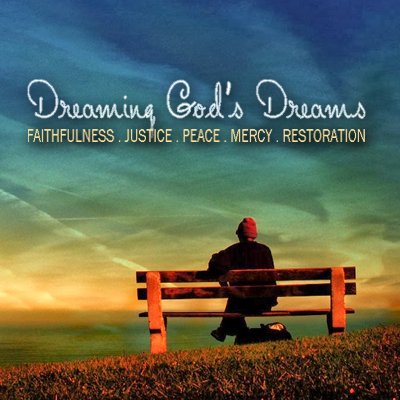Joy of Heaven To Earth, Come Down
Dreaming God’s Dreams: Part 5
Sunday, November 20, 2022
Zephaniah 3:14-20; Malachi 3:1-6; Revelation 21:10
On that day, it will be said to Jerusalem:
Don’t fear, Zion.
Don’t let your hands fall.
The Lord your God is in your midst—a warrior bringing victory.
He will create calm with his love;
he will rejoice over you with singing.Zephaniah 3:16-17
"Who can endure the day of his coming? Who can withstand his appearance? He is like the refiner’s fire or the cleaner’s soap. He will sit as a refiner and a purifier of silver. He will purify the Levites and refine them like gold and silver. They will belong to the Lord presenting a righteous offering. The offering of Judah and Jerusalem will be pleasing to the Lord as in ancient days and in former years..”
Malachi 3:2-4
Listen to this week’s sermon here:
____________________
Sleigh bells ring and carols sing as Thanksgiving quickly fades into our rear-view mirror and we move into Advent next Sunday. In all honesty, today’s scripture from Malachi often shows up in the traditional Advent readings. It's difficult for us to hear the challenging words of the prophets in a time when all we want to think about is the cute little baby in the manger.
Nevertheless, we must prepare for such a joyful season of celebration, and we have done so this year by learning to dream God's dreams for ourselves and for our world. Advent is all about the anticipation and preparation for the coming of Christ. As we celebrate his first appearance some 2,000 years ago, so we await his second coming when all the world shall be restored and the Kingdom of God will be fully manifest on earth as it is in heaven.
Who among us would try to decorate our homes without first vacuuming, dusting, and straightening? What joy would there be in sitting down that first night under the lights of the Christmas tree with a mess all around? How many of us would gather around a holiday meal with all of the trimmings simply piled on top of a month's worth of bills, children's homework, or junk mail still laying on the table?
That's why the prophets are so crucial to our "holiday" celebrations. They remind us that this season is not merely a temporary distraction from the ordinary darkness we experience throughout the rest of the year. We don't just hide all of our sin and darkness and mess under the wreaths and candlelight. We have to clean up, or rather, allow God to clean us up. The fire of the Holy Spirit is not only a light unto our path, she is a refiner of our souls.
This is God's dream for creation: that we are faithful, that we do justice, that we work for peace, that we extend mercy, and that all of this moves us closer and closer to the complete restoration of Eden, the New Jerusalem, the full in-breaking of the Kingdom of Heaven!
As we move into this Advent Season, let us live and work and worship together under an Open Heaven, here and now and for all eternity.
Thy Kingdom Come, Thy Will Be Done... on Earth... as it is in Heaven!


